
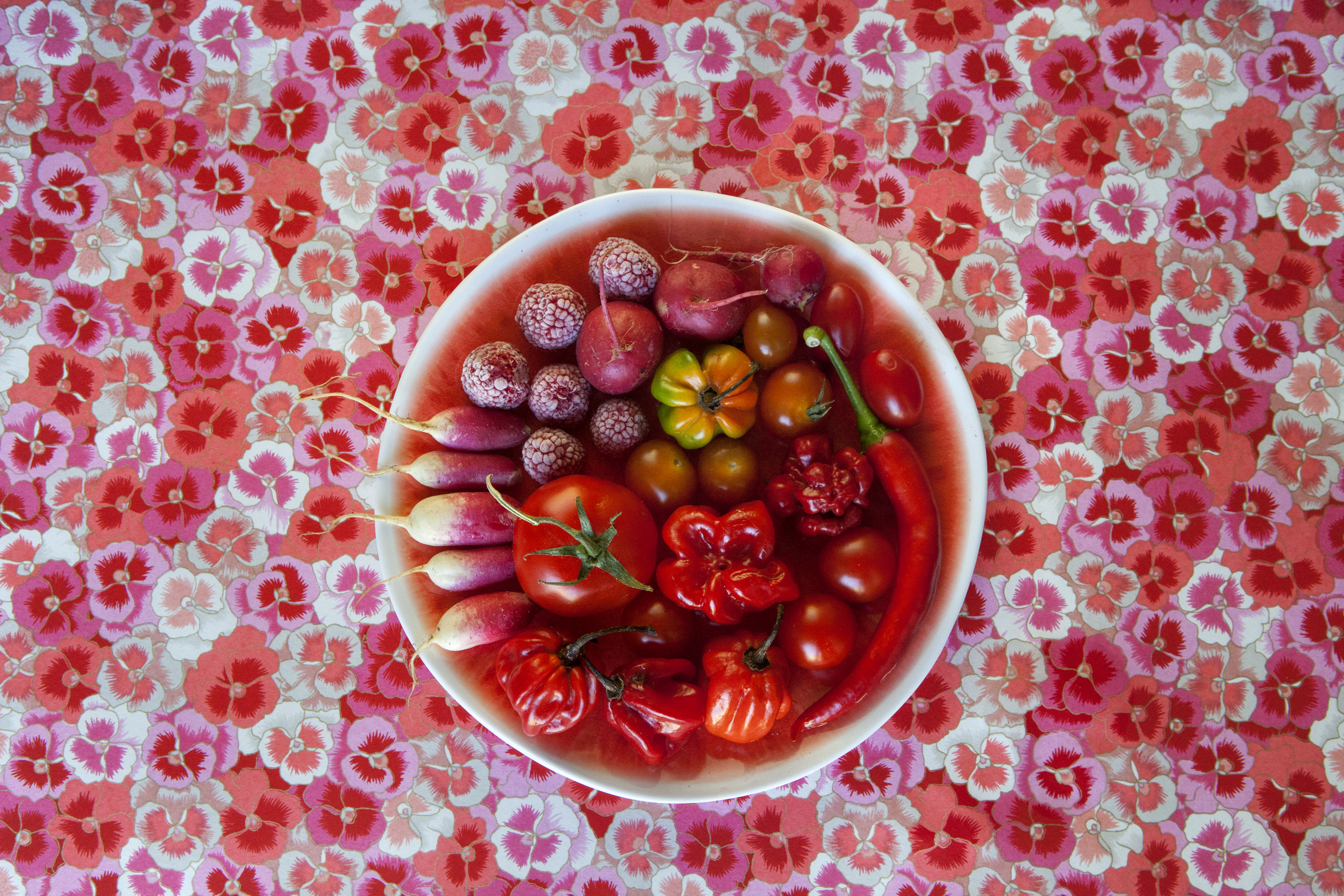
Carmin
24th July 2019
Part of the Oxford Cultural Collective ‘Perspectives on Food in Photography’ initiative.
Courtesy of the Artist and Praxis Gallery.
Argentinian photographer Lucia Fainzilber is currently staging a solo exhibition – ‘The Cookbook’ – at the Praxis Gallery in New York City. Here, she shares the inspiration behind her striking, memorable images.
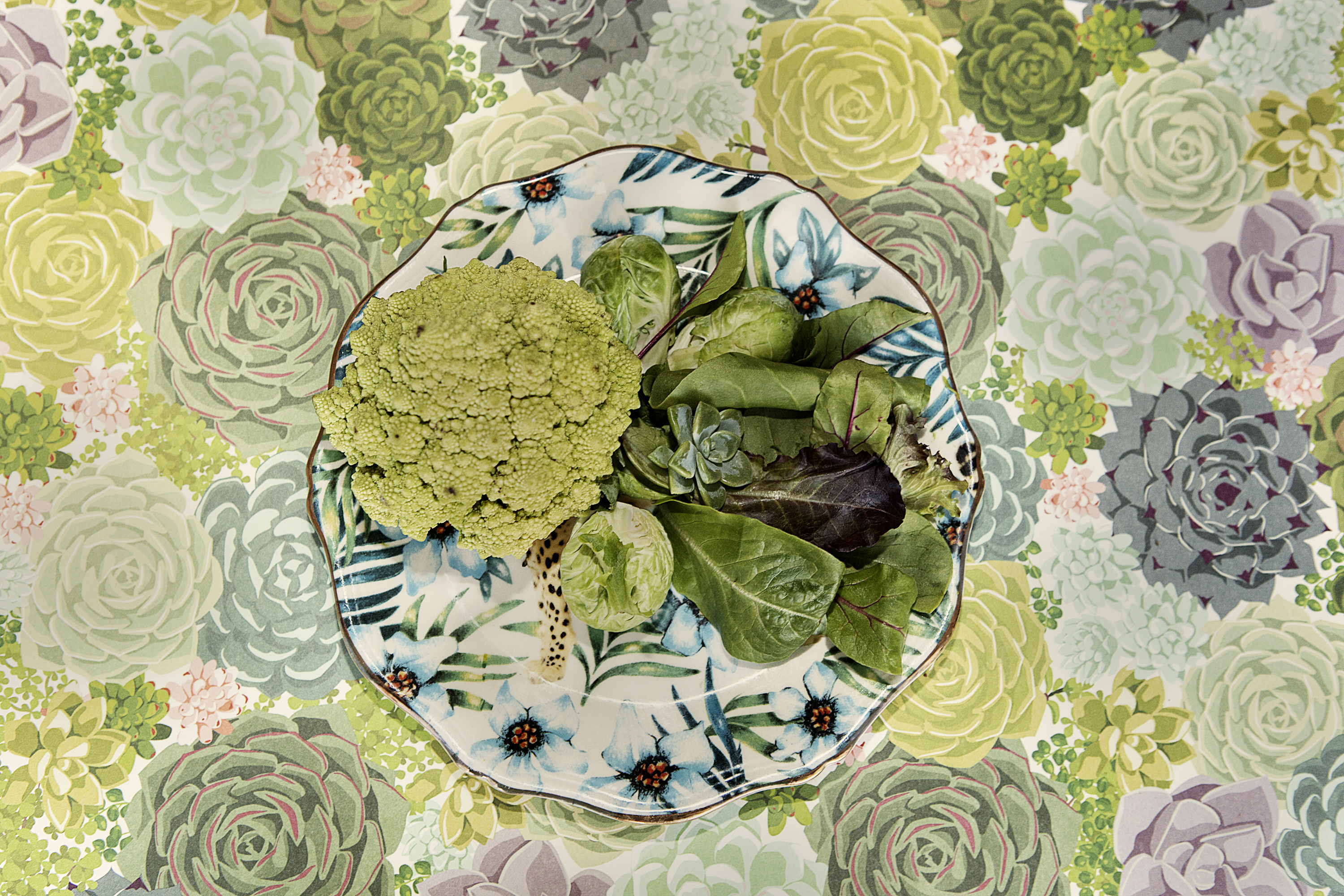
Green
Your photographs in this exhibition are visually striking. Was your aim simply to create images that are aesthetically appealing, or do they speak in some way of our relationship with food?
I come from a family in which food has a significant, beautiful, yet complex role. There is a big immigrant legacy and food became a key element in keeping our Jewish identity alive. The kitchen has always been our meeting point and there is always a reason for us to get together around a table. My grandmother’s pastrami every year receives its score and every birthday our most personal and delirious desires are fulfilled with her cakes. But food has not always been about pleasure; it is also about restriction and guilt, creating a love-hate relationship. Also, I am very interested in how food defines ordinary life and special occasions alike, creating pleasure as well as provoking shame. It is a vehicle for memory, prompting nostalgia and inspiring utopian dreams. It expresses generosity, community and culture, causes pollution and contributes to climate change. I had a big debt in working with food, being able not only to understand its role in society but also in my own family’s identity.
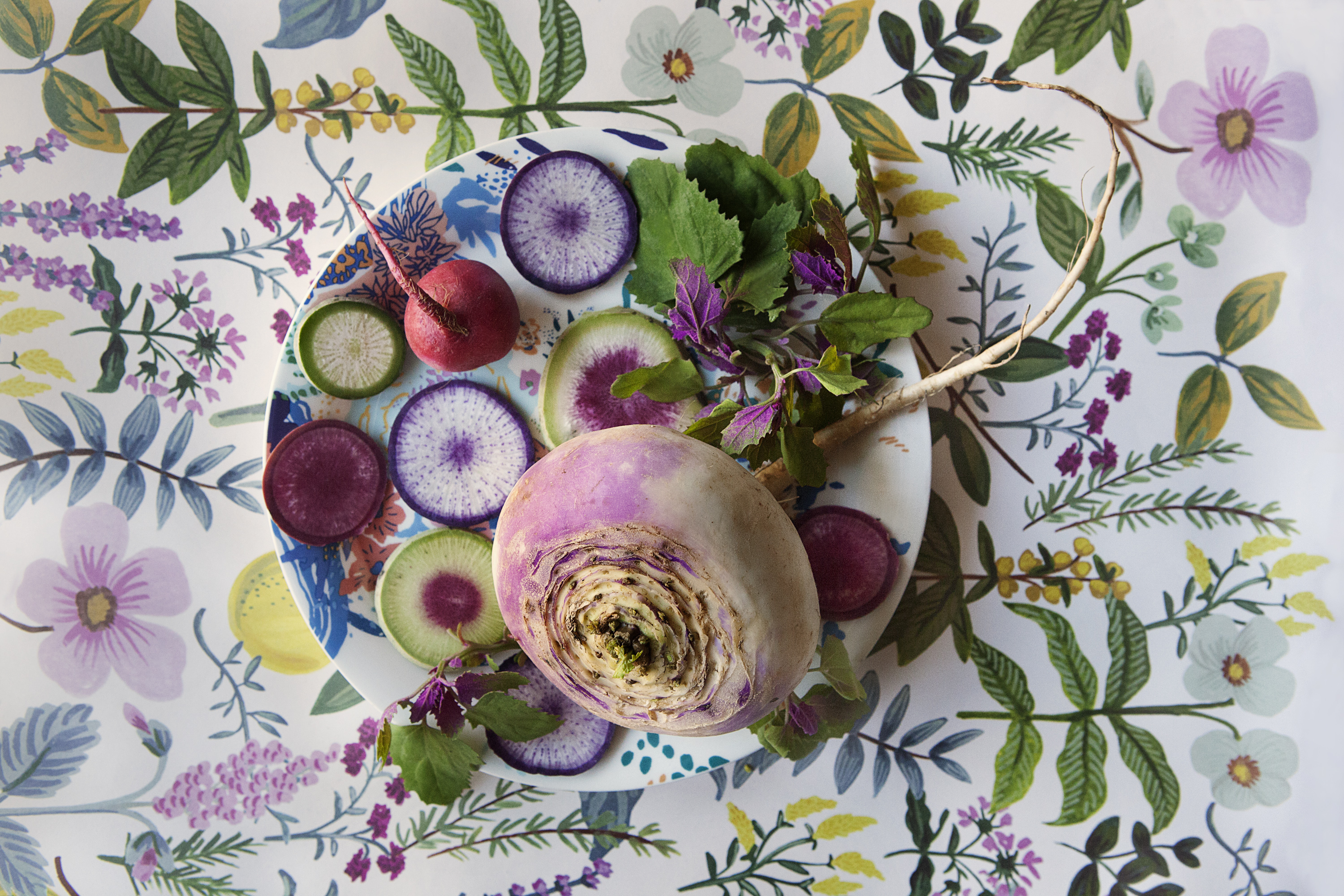
Tutti Frutti
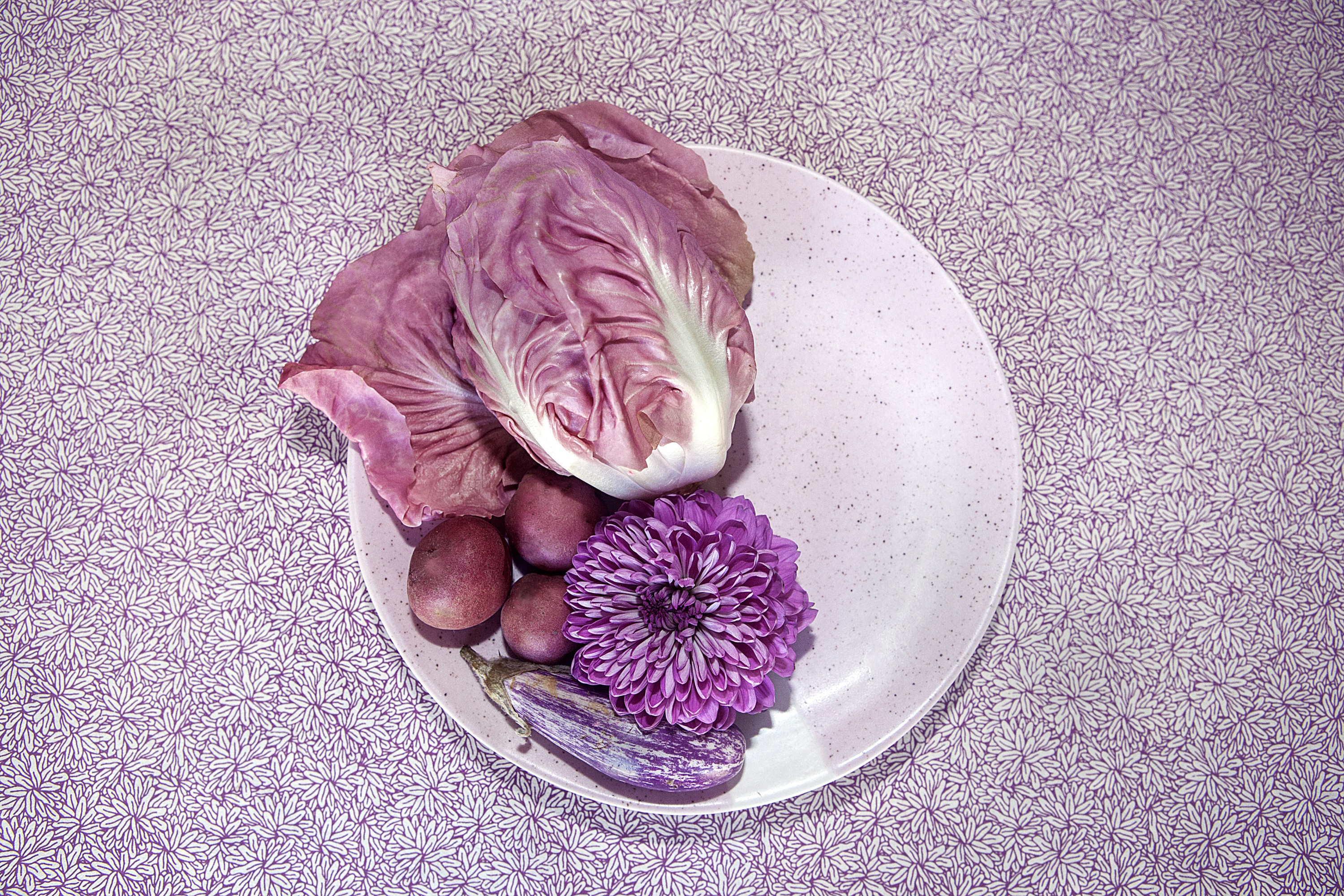
Pink
The composition of the images is highly original. Where did the idea for this creative composition come from?
One of the things that I love of living in NY is the variety of ingredients and food ethnicities that you can find. Going to the markets and finding all these ingredients with different textures and colors has been something that inspired me a lot.
The representation of food once served as figurative elements in still-life compositions and in decorative paintings. Food was as meticulously staged as it is in today’s posts – the overhead shots that are now a defining part of the universal visual language of food in our digital age. Having these things in mind I started composing each photo as a visual exercise, aiming to create harmonic feasts for the eyes.
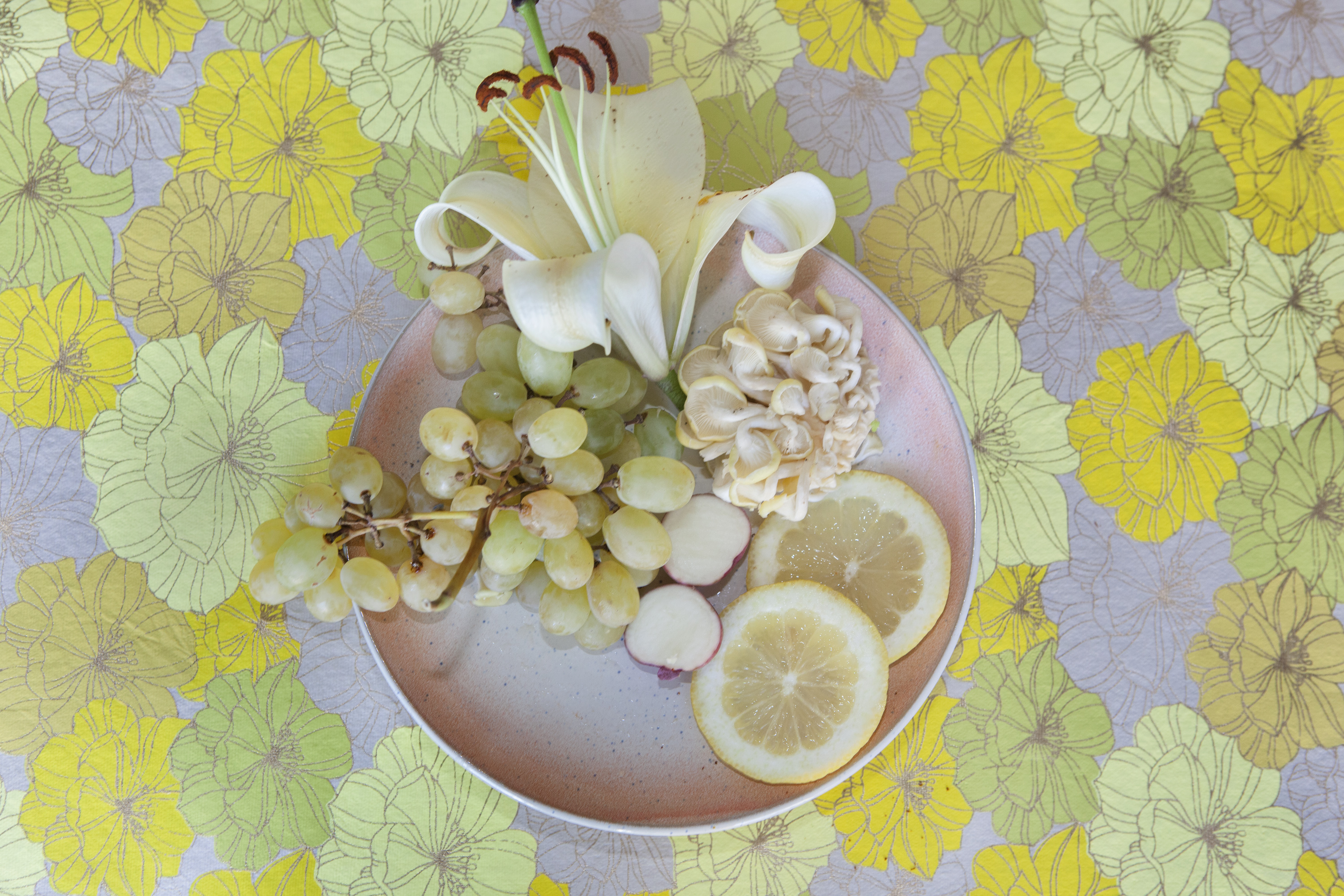
Citrus
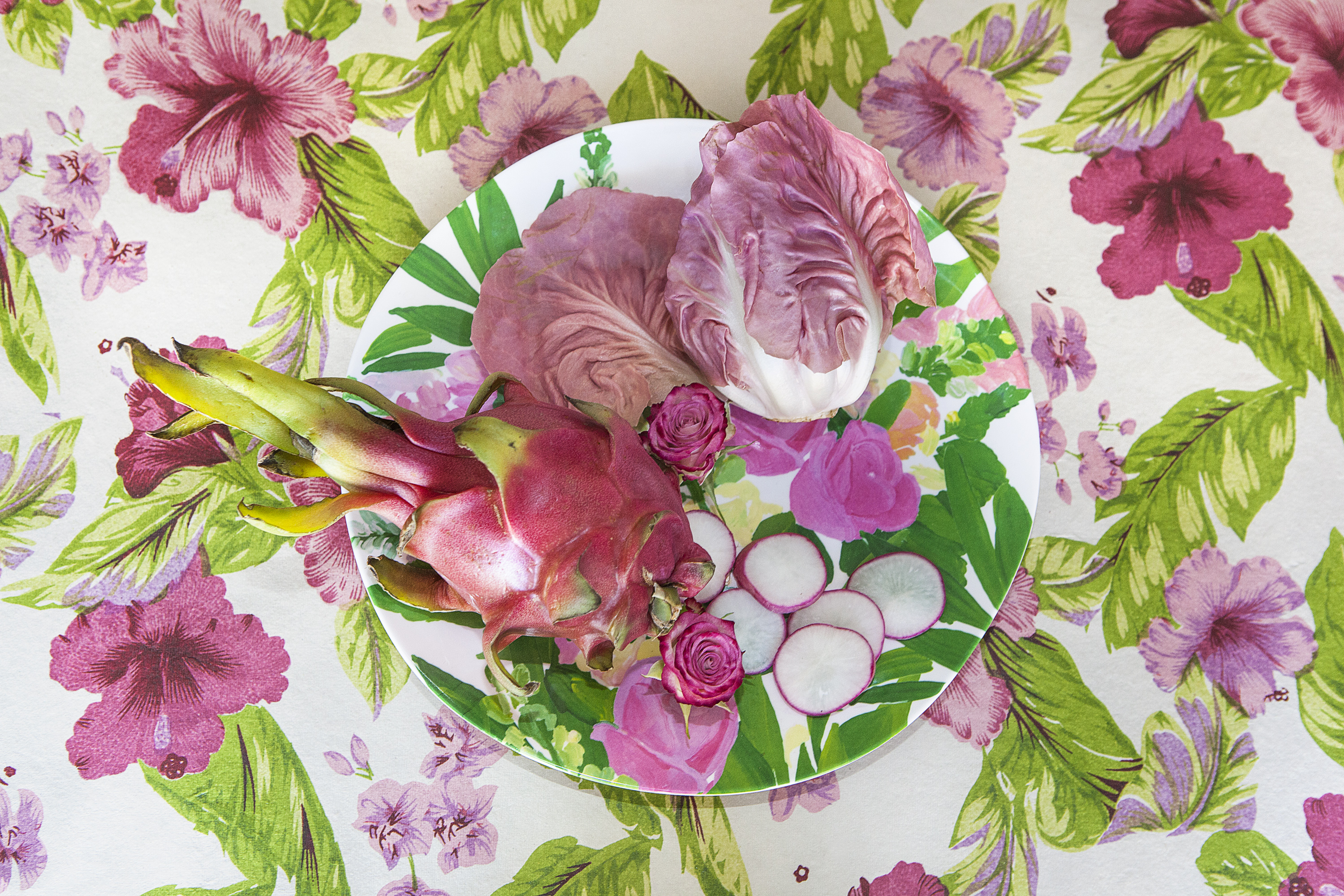
Dragonfruit
In your introduction to the exhibition you refer to food as ‘trendsetting agent, an art form…’. Does this undermine a more natural interpretation of food – as something to be enjoyed and shared, which speaks of our cultural identity?
Technology and social media have changed our relationships, our work, the way we communicate and even our connection with food. Although food and identity are still strongly related, the fact of having access to so many images about food has culturally expanded those boundaries. Nowadays we are able to visually consume a wider range of culinary habits than before. But still, there is a big contradiction with respect to sharing. Sharing in social media is way more selfish than any real way of sharing. It is about showing and demonstrating, while the real act of sharing it is about the experience of enjoying with others. I don’t consider that the role of food has necessarily been subverted but yes it is shifting as a new way of expression.
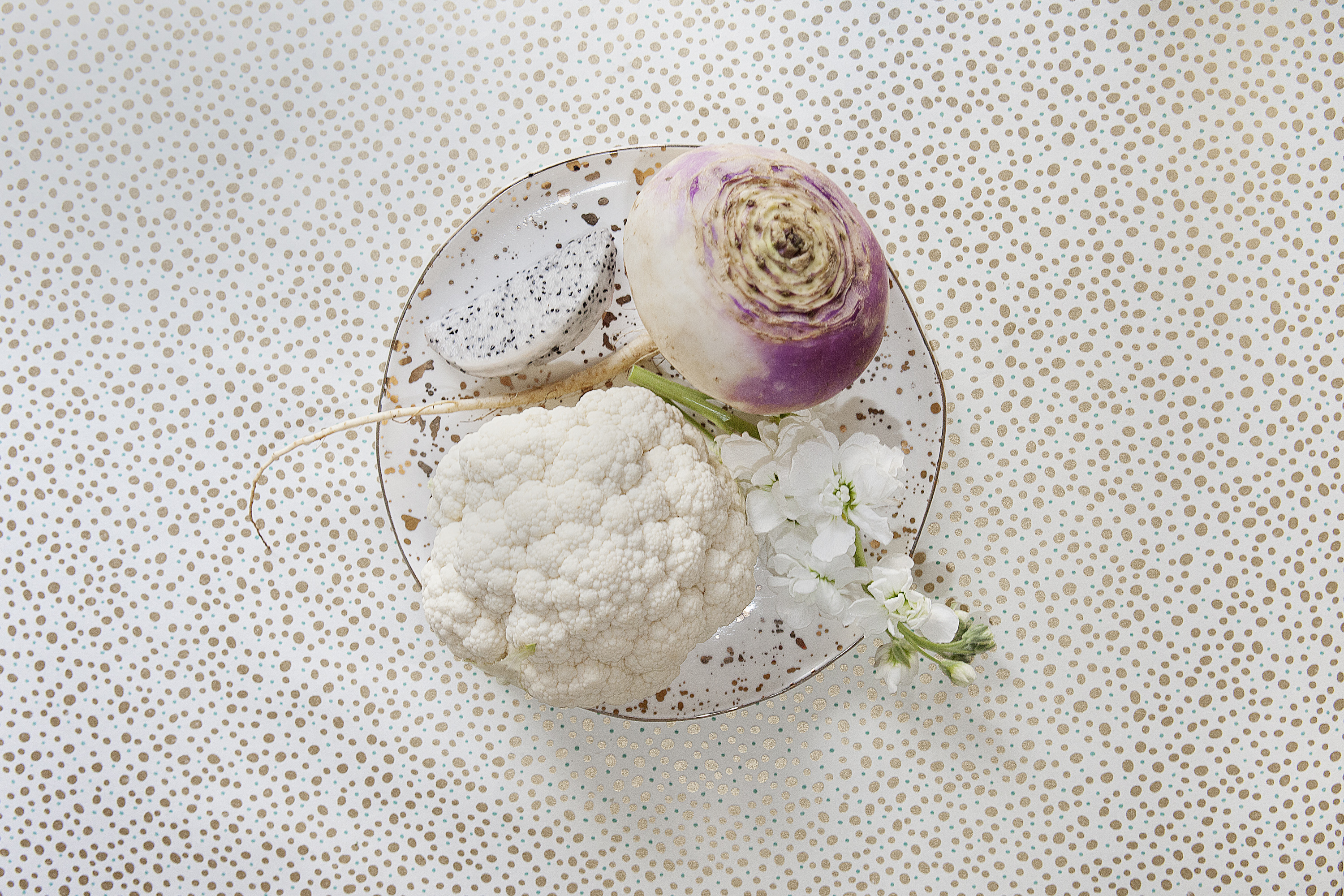
Blanc
What does our collective obsession with posting photographs of food on social media say about how our attitude to food has changed?
The exhibition explores how the role of food has shifted to become a huge protagonist in our social media feeds. Nowadays almost 75% of the images we see in public transport, advertising, Instagram and other networks, is about food. We consume it virtually, in an imagined state of deliciousness, as an unrealizable desire. It is no longer about gastronomy. Instead, it has become a leading star of a series, awarded its own hashtags such as ‘food porn’, posted by self-proclaimed ‘foodies’. Food has always been charged with a strong cultural identity and cookbooks were like family albums which contained expressions of taste. They were written primarily for and by housewives as an instruction books for daily tasks. With technology and social media they have been replaced by our feeds and video tutorials, turning them into highly elaborate images that tun food into a fetish. Each of the dishes in the Cookbook exhibition presents a different combination of ingredients, all of which co-exist in a beautifully harmonic way.
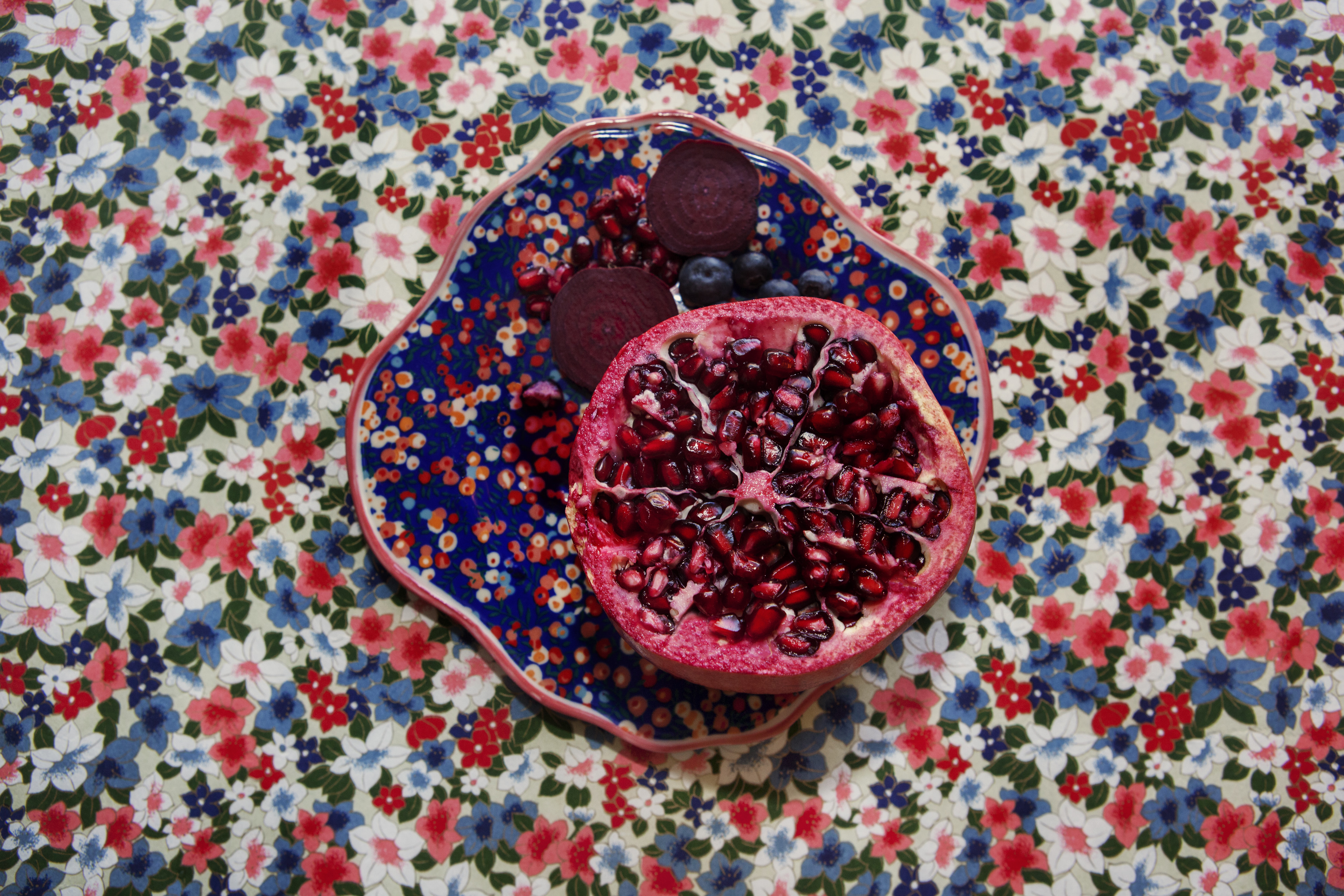
Pomegranate
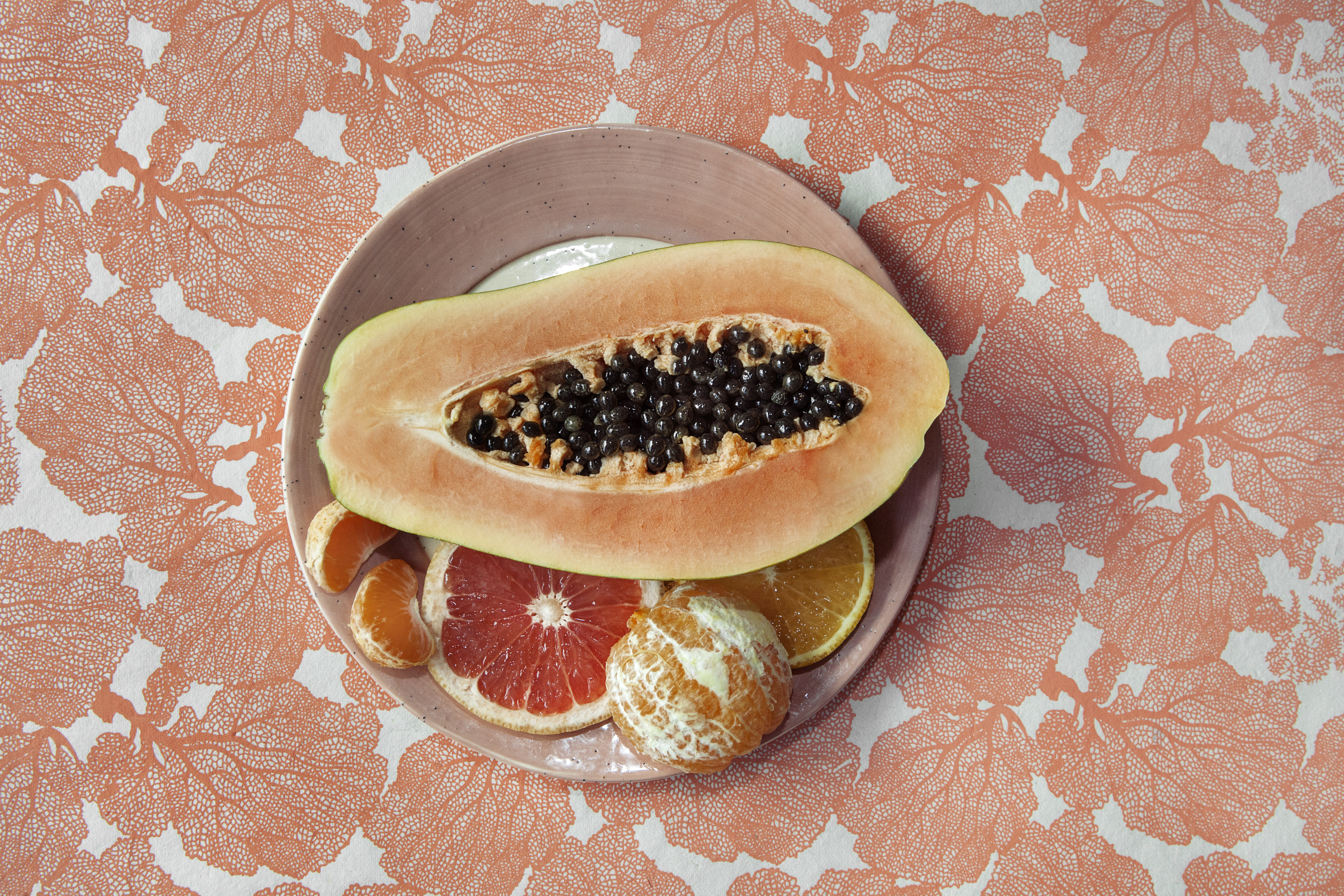
Peach
‘Cookbook’, by Lucia Fainzilber, is at the Praxis Gallery until 7th September 2019.
Praxis, 501 W. 20th Steet, NY, NY 1011
Praxis was founded in 1977. With locations in New York and Buenos Aires, its mission is to bring the compelling creativity and imagination of Latin American contemporary art to a worldwide audience.